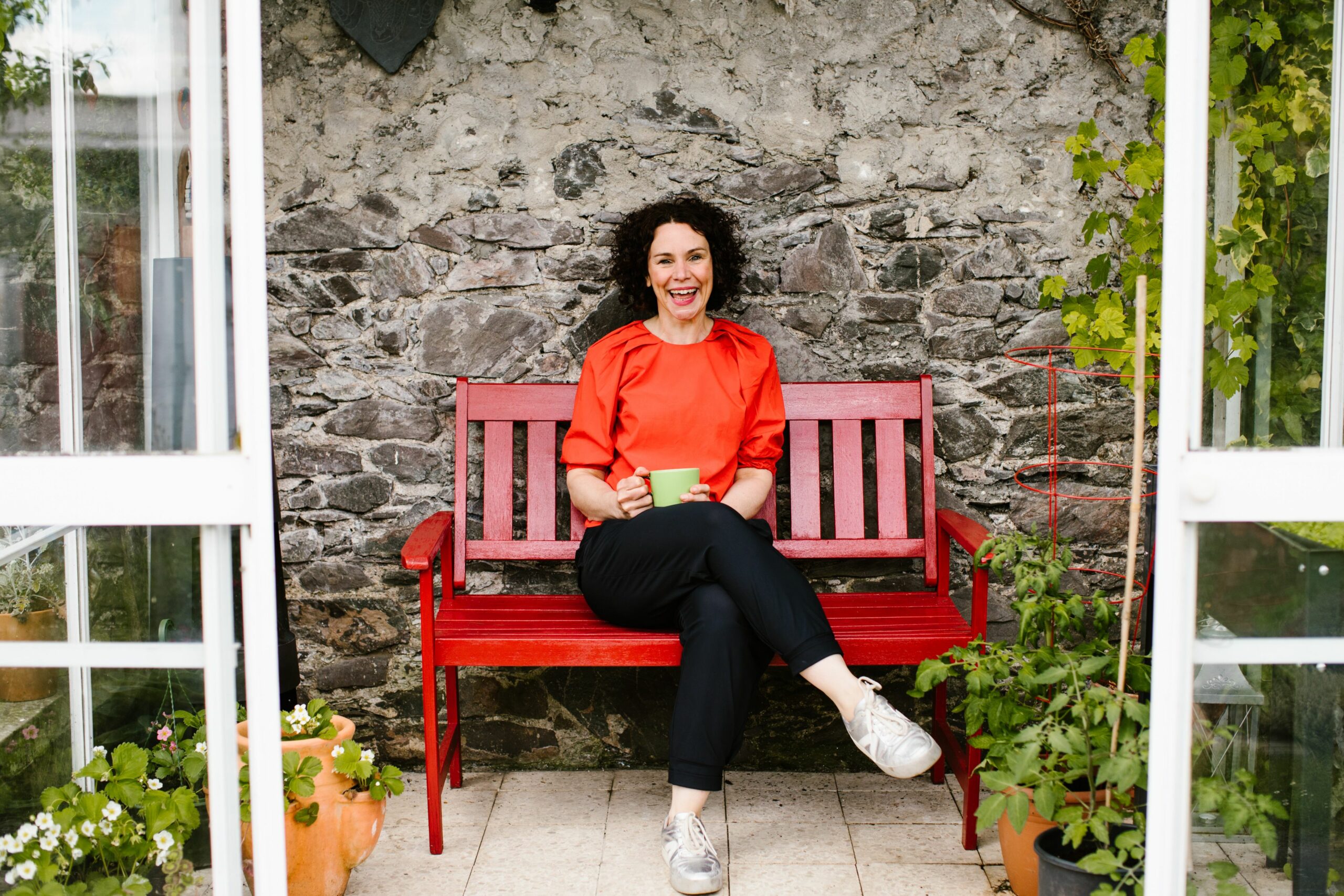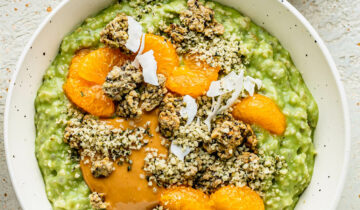Nutritionist Jane McClenaghan offers us advice on how to maintain a healthy gut.
Maintaining a Healthy Gut
Here are 3 simple ways to help you eat your way to digestive health.
1. Take it easy
The digestive process starts even before you take your first bite of a meal. The anticipation of the tasty food you are about to eat sends signals to your belly to get ready to start the digestive process.
If we eat in a hurry, when we are under stress, or while we are focused on something else (like emails, TV or social media) our digestion is not as efficient. On the other hand, eating when we are relaxed switches us into the parasympathetic mode, also knowns as ‘rest-and-digest’. A better state of mind than fight-or-flight in order to enjoy and digest a meal.
Here are some tips to help you slow it down:
- Sit at a table to eat
- Set your cutlery down between each mouthful
- Switch off your devices and TV
- Relax and enjoy your meal
2. Fill up on fibre
Everyone knows that eating more fibre is good for the gut, but it goes far beyond just helping to keep you regular. Getting a balance of the right type of fibre in your diet can help to support a healthier balance of bacteria in your gut microbiome, which has knock-on effect across your whole body – from hormone balance and immunity, to mental wellbeing and cardiovascular function.
We are recommended to get 30g of fibre in our diet every day. Most adults only get about 20g, so we could do with a boost. (3)
There are different types of fibre in our diet, each with its own benefits to digestion.
Insoluble fibre – this is the stuff that used to be known as roughage and is found in the husks, skin and seeds of plant foods like wholegrains, nuts, seeds, fruit and vegetables. This type of fibre adds bulk to the stool and help things to pass through the digestive tract more efficiently, so is important for the relief of constipation.
Soluble fibre is found in the flesh of fruit and vegetables, brown rice, flaxseed, chia, oats and psyllium husks. This softens the stool and helps to keep you regular. Soluble fibre is fermented in the large intestine to produce by-products known as short chain fatty acids (SCFAs) that are essential for the health of our gut lining and may also be beneficial when it comes to immunity and metabolism. (1)
Adding flaxseed to your daily diet is a simple way to increase both soluble and insoluble fibre.
Flaxseed has been shown to help with symptoms of constipation, IBS and diverticular disease. (2)
Try adding Linwoods milled flaxseed to overnight oats or porridge, a spoonful in some natural yoghurt with berries, or sprinkle on top of soups or salads for a top up A 20g portion of milled flaxseed is an easy way to add 5g of our daily recommended 30g fibre.
3. Eat more plants
The research is indisputable – the more variety of plant-based foods we have in our diet, the better the diversity of bacteria in our microbiome.
This goes beyond eating five potions of fruit and vegetables a day, although that is important too. Seeds and nuts, herbs and spices, wholegrains and pulses all count.
As well as providing us with fibre, these foods are an important source of polyphenols that act as prebiotics to support a healthy balance of gut flora. (4)
- Eat more than 5 portions of fruit and veg every day
- Choose colorful fruit and veg for more polyphenols
- Add herbs and spices when you can
- Add 2 tablespoonfuls of flaxseeds and a handful of nuts to your daily diet
- Eat vegetables you don’t usually choose
- Eat different wholegrains like oats, brown rice, quinoa and buckwheat instead of your regular pasta or rice
- Chassaing, B., Vijay-Kumar, M., & Gewirtz, A. T. (2017). How diet can impact gut microbiota to promote or endanger health. Current opinion in gastroenterology, 33(6), 417. [accessed April 2022 via: https://www.ncbi.nlm.nih.gov/pmc/articles/PMC6005665/]
- Kajla P, Sharma A, Sood DR. Flaxseed-a potential functional food source. J Food Sci Technol. 2015 Apr;52(4):1857-71. doi: 10.1007/s13197-014-1293-y. Epub 2014 Feb 28. PMID: 25829567; PMCID: PMC4375225. https://www.ncbi.nlm.nih.gov/pmc/articles/PMC4375225/
- https://www.nhs.uk/live-well/eat-well/digestive-health/how-to-get-more-fibre-into-your-diet/
- Filosa S, Di Meo F, Crispi S. Polyphenols-gut microbiota interplay and brain neuromodulation. Neural Regen Res. 2018 Dec;13(12):2055-2059. doi: 10.4103/1673-5374.241429. PMID: 30323120; PMCID: PMC6199944.
————————————————————————————————
Jane McClenaghan is Northern Ireland’s most recognised nutritionist with over 20 year’s experience. Her company Vital Nutrition specialises in developing and delivering group sessions for corporate and community clients both online and in-person as well as running an online membership club and offering one-to-one consultations.
Jane’s knowledge in the subject area of health and wellbeing is unrivalled as indicated by her qualifications, reputation and experience.
Jane’s sessions cover a range of health and wellbeing topics from mental health to stress, female and male health, healthy eating on a budget, heart health, sleep, family wellbeing and much more.
Jane is also the author of two books on nutrition, she writes a weekly column in the Irish News, has a monthly slot on radio U105 and is a regular contributor to the BBC, The Belfast Telegraph and many other media outlets.
You can find out more and get in touch with Vital Nutrition here;










 No products in the cart.
No products in the cart.